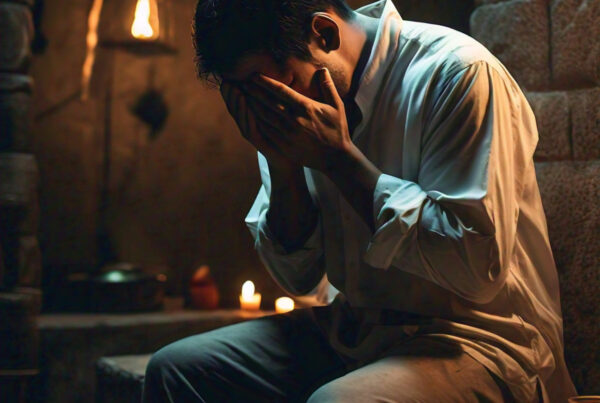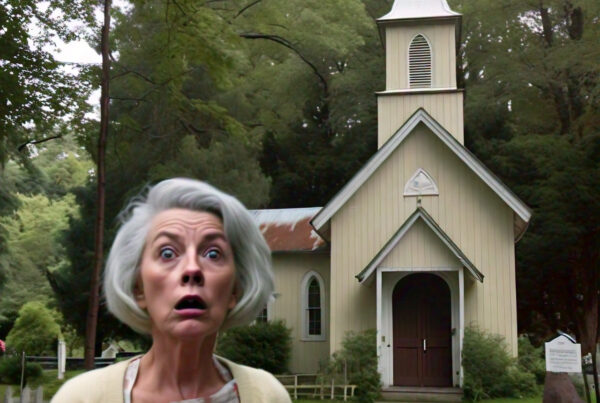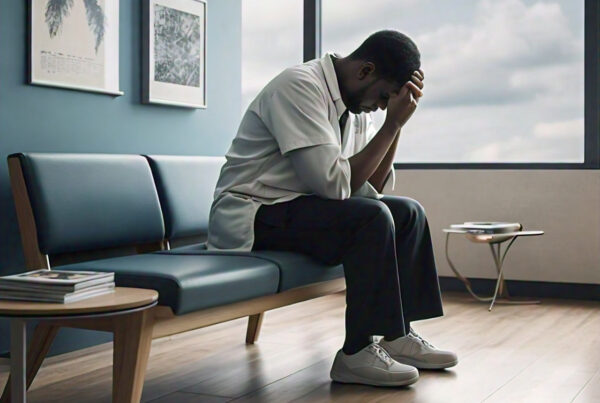
Over the past few weeks several high profile Christian leaders have been forced to step down because of sins they committed with or against others. I know some of these leaders from a distance, some are acquaintances, and some are friends. Each public revelation of sin has been shocking and beyond comprehension, culminating with appalling news that Robert Morris, the founder of Gateway Church in Dallas, sexually molested a girl for over four years, beginning when she was 12 years old. I don’t have a category for the kind of depravity that does something like that, and then covers it up for 35 years while leading a church with global reach. The question I keep asking is how do we, as pastors and leaders, respond to the immorality among our peers.
I think there are several answers. First, we have to ask, “Are there systemic problems in western church culture that lead to failure by some of our most prominent leaders?” I think it is a huge mistake to see each story as an isolated event, a one off from the norm. It is important that we discover the common threads, the cultural soil, that breeds and promotes such dysfunction in those we follow. We need honest conversations, not just axe grinding against what we don’t understand or agree with, to find the path to holiness in our leaders and organizations. Many leaders are asking the right questions; I hope to be at the table for some of those conversations.
The second response is to ask, “How do I keep from going to the path to destruction; destruction for myself, my family, the people I lead, and the congregation I serve?” As much as I want to see a change in church culture, the only change I can truly impact is the change in the guy I see in the mirror every morning. As church leaders we have to take a long, hard look at ourselves before we point fingers or jump to conclusions. This is what the apostle Paul said about himself in his first letter to the church at Corinth.
So I run with purpose in every step. I am not just shadowboxing. I discipline my body like an athlete, training it to do what it should. Otherwise, I fear that after preaching to others I myself might be disqualified.
1 Corinthians 9:26-27 NLT
C.S. Lewis said that the path to disqualification is a gradual one. We don’t wake up one day and decide to violate our marriage covenant, or to bring a lifetime of harm to someone we have power over. We simply take the next, easy step on the road.
“Indeed the safest road to Hell is the gradual one–the gentle slope, soft underfoot, without sudden turnings, without milestones, without signposts.”
C.S. Lewis, The Screwtape Letters
In 42 yeas of vocational ministry I have seen many leaders disappear down that road, and I’ve occasionally found myself on somewhere on that path as well. When I read of another fallen pastor my first reaction isn’t, “How could he?” my reaction is, “How is it not me?”
So how do we get off the road to disqualification? Here are several dangerous attitudes I look for in my life, they might resonate with you as well.
I’m immune
I know I’m in a dangerous place when I find myself thinking, “I would never go down that path, I’m too close to Jesus.” No one is immune. If you are breathing there is a path to destruction for you. Your path won’t look like mine, and it probably won’t look like any of the prominent leaders you read about on social media, but it exists.
I’ve heard another flavor of immunity from peers my age that sounds like this, “I might have gone down that path in the past, but now I’m mature.” Until I’m worm food I am capable of some pretty awful things. Age does not make me immune from disqualification.
A feeling of immunity is simply pride in disguise, and pride always goes before a fall.
I’m Exempt
This is the dangerous thought that I have moved beyond doing the basic things other Christians need to do. Sure, church attendance is good for new Christians, small groups work for less mature believers, and serving in a local church is a great way to get started, but I’m beyond all that. I’m amazed at the number of leaders of national ministries who haven’t been part of a local church for years, and how many pastors don’t participate in the life of their own church.
My battle with feeling exempt starts with stacking chairs. I have stacked and unstacked thousands of chairs over five decades of ministry. I could write a doctoral dissertation on chair stacking. I hate stacking chairs. When it comes time to move the chairs, there is a voice in my head saying, “You have put in your time; you are too old to be stacking chairs. You are at a level of leadership well above such a mundane task. Chair stacking is for those below you on the org chart.” And that is when I know its time to grit my teeth, say bowling words under my breath, and throw another chair on the stack. I am not exempt.
I’m Excused
Once I feel exempt from certain disciplines and responsibilities it is a short ride to feeling that I have valid excuses for the sin in my life. I am exhausted, stressed out, overwhelmed. I need an outlet, a break, an escape. It was just one time, it was in the past. I knew it was wrong, but everyone sins a little. I have it under control.
Pastoring and leading are hard, the demands can be overwhelming, and dealing with constant criticism eats at the soul. Not for a minute, however, does any of that excuse sin in my life. Looking at content I should be looking at, being alone with someone I should not be alone with, or abusing a substance I should avoid are all steps on the road to destruction. I don’t need excuses, I need help. King David said it like this,
“How can I know all the sins lurking in my heart? Cleanse me from these hidden faults. Keep your servant from deliberate sins! Don’t let them control me. Then I will be free of guilt and innocent of great sin.”
Psalms 19:12-13 NLT
I’m Entitled
Entitlement says I am owed something because of my position, my sacrifice, and my value to the organization. I have worked hard to get to where I am, my gifted leadership is why this ministry is successful, and I am owed a higher level of respect and treatment than others. I am entitled to the perks of leadership.
Jesus knew the destruction of entitlement, which is why he wrapped a towel around his waist and washed dirty feet at his last dinner with his disciples. The human soul was not created to be worshipped, so Jesus called us to be servants not masters. Servants don’t have reserved parking places, personal attendants, or secret perks. I know that goes against the root of “honor culture”, but Jesus said, “I did not come to be served, but to serve others.” You cannot feel entitled while wearing a towel and washing dirty feet, and you cannot serve others when they are forced to bow to you and the whims of your will.
Entitlement is better known as idolatry, and I’m the idol.
I’m Numb
One of the most dangerous steps on the road to destruction is feeling numb. People’s stories no longer move me, I don’t feel anything during times of worship, I am just showing up and doing my job. Rather than passion and compassion I feel tired and angry. If I could find an off ramp I’d take it, but this is all I know how to do.
Feeling numb doesn’t necessarily lead to sexual immorality, substance abuse, or any public cause for disqualification. Continuing to do ministry while feeling nothing is spiritual death; we don’t have to commit any covert sin to be disqualified, we’re already there.
Most of us will never be grist for the online scandal mills because writing juicy gossip about garden variety leaders like you and me doesn’t bring clicks and donations. (Be ware of “reporters” who make a living off the moral failures of others.) We are, however, drawn daily to the path of disqualification and destruction. Let’s follow Paul’s example, and the example of thousands of faithful leaders who’ve gone before us, to stay disciplined, transparent and honest as we navigate the narrow road that leads to life.



Geoff, thank you for this honest, forthright and open letter to all who are receiving it As a congregant, I must always be aware of the lives of not only folks like me, but also our pastors. We are not immune to any of the mistakes made by others, as we can also be doers and receivers of each of these situations. I will be more aware in the future of some signs and symptoms,( with compassion) and look forward to your participation in the future conference, hugs